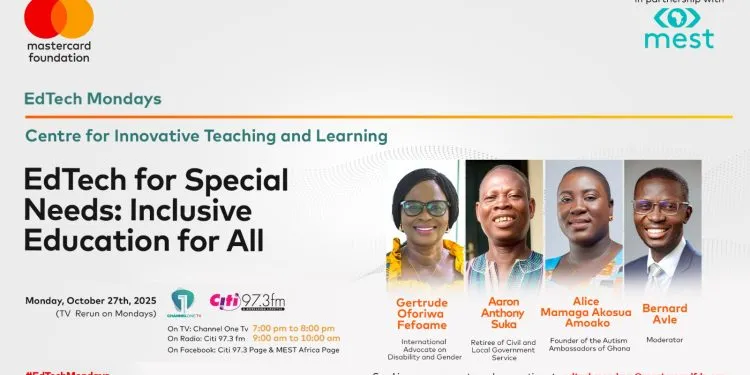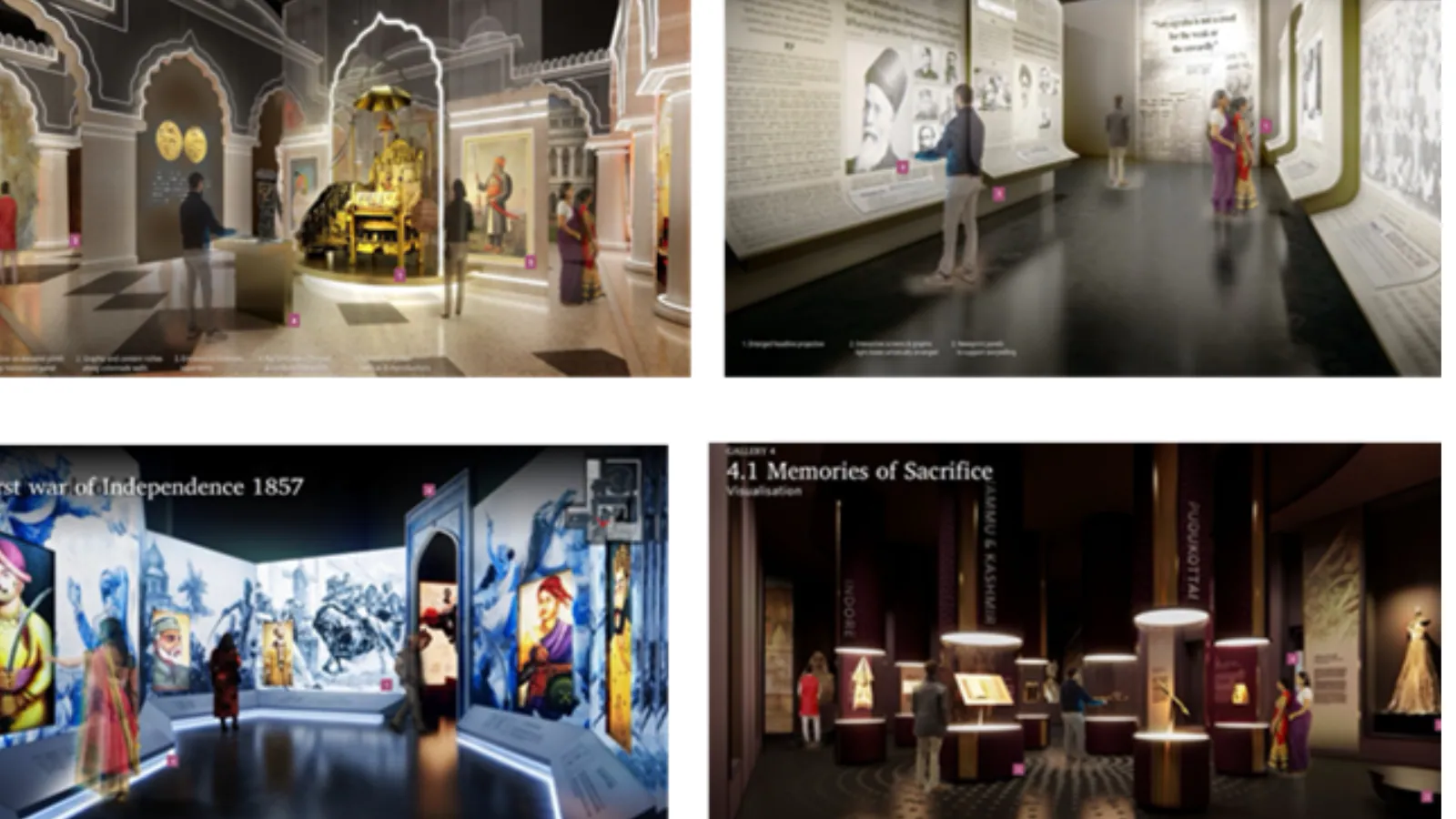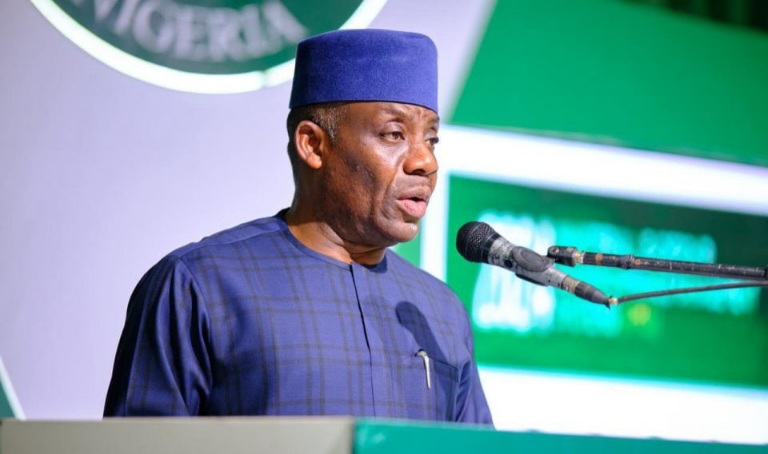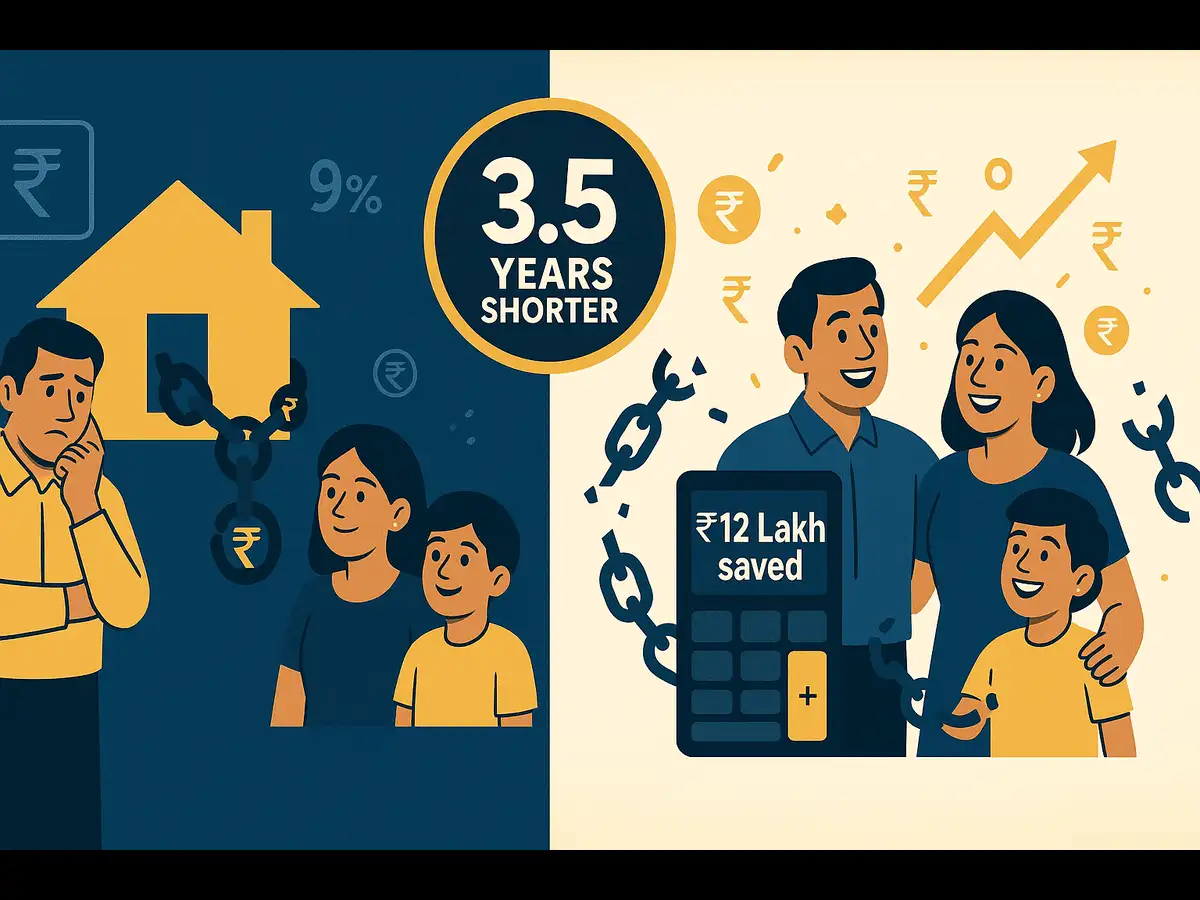Copyright thebftonline

October edition of EdTech Mondays, which aired on Channel One TV and Citi 97.3 FM on October 28, 2025, explored a powerful and often underrepresented theme: how education technology can enable inclusive learning for students with special needs. Moderated by Bernard Avle, the conversation brought together an inspiring panel: Mrs Gertrude Oforiwa Fefoame, Miss Alice Mamaga Akosa Amwako, and Mr Aaron Anthony Suka, all leading advocates for disability inclusion, special education, and social protection. Together, they unpack what it takes to make technology not only innovative but also truly accessible and inclusive for every learner. At the heart of the discussion was a shared conviction: technology can bridge barriers, but only when designed with inclusion at its core. As Mrs Fefoame emphasised, “Technology serves as the foundation for many things, including education. For inclusive education, it is the basis for acquiring and imparting knowledge.” She reminded viewers that disability itself is not the limitation; attitudes, design gaps, and stigma are. “It is not disability that creates the barrier,” she said. “It is the behaviour, the attitude, the stigma, and the discrimination.” From a clinical and behavioural perspective, Miss Alice Mamaga Akosa Amwako highlighted how technology can be a lifeline for children with autism and other special needs. “Technology has become a profound tool that helps children with autism improve communication, manage behaviour, and interact meaningfully with others,” she noted. However, she also cautioned that accessibility is not just about free apps — it’s about affordability and local innovation. “For families already burdened with financial challenges, accessibility means more than free apps; we must design low-tech innovations that everyone can afford,” she said. Mr Aaron Anthony Suka emphasised the importance of policy enforcement and accountability in ensuring inclusive education. “We have good laws on inclusive education, but the challenge is implementation,” he said. “There must be monitoring, evaluation, and real enforcement to make them work.” He also underscored the role of technology in empowering vulnerable communities to participate fully in education, employment, and society. The episode revealed both the progress and the gaps in Ghana’s journey toward inclusive education. While innovations are emerging, from assistive apps to adaptive classrooms, the experts agreed that true inclusion demands collaboration between government, innovators, educators, and families. Ultimately, the October edition of EdTech Mondays delivered a powerful message: inclusion is not optional; it’s essential. For EdTech to fulfil its promise, it must be built for all learners, regardless of ability, background, or circumstance. As always, EdTech Mondays is powered by MEST Africa and the Mastercard Foundation, advancing their shared mission to promote inclusive, quality education and innovation across Africa. If you missed the live broadcast, catch the TV rerun this Monday at 7:00 pm on Channel One TV, or watch the replay on MEST Africa’s YouTube and Facebook page. Stay tuned for the next edition of EdTech Mondays as we continue to explore how technology can transform learning for everyone, everywhere.



